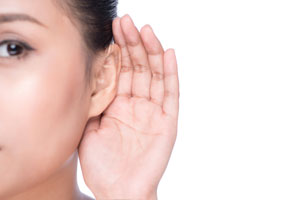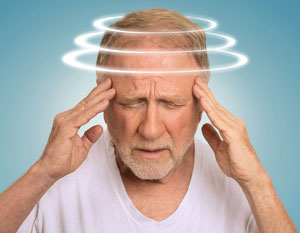 Hearing loss and dizziness can have a significant impact on your daily life. There are a number of different causes of hearing loss and dizziness, and depending on the cause of the pathology the treatment pathway is unique and individualized for each patient.
Hearing loss and dizziness can have a significant impact on your daily life. There are a number of different causes of hearing loss and dizziness, and depending on the cause of the pathology the treatment pathway is unique and individualized for each patient.
Hearing loss can occur gradually or suddenly, depending on the underlying cause and it may affect one or both ears. The severity of hearing loss ranges from mild to profound. Early symptoms may include difficulty understanding speech, turning up the volume on a phone or TV, or difficulty hearing in noisy environments. Sudden hearing loss can be an otologic emergency and should be treated within 72 hours of onset. If left untreated, hearing loss can worsen and lead to cognitive decline, memory loss, communication difficulties, and a decreased quality of life.
Common Causes of Hearing Loss
- Age-related hearing loss (presbycusis)
- Noise-induced hearing loss (exposure to loud noises)
- Genetic factors
- Ear infections or fluid buildup
- Trauma and ototoxic medications (medications that can harm the hearing system)
- Tumors and autoimmune diseases
Treatment of Hearing loss
- Hearing aids: Small electronic devices that amplify sound to improve hearing.
- Cochlear implants: Surgically implanted devices that directly stimulate the auditory nerve.
- Assistive listening devices: Devices like amplified telephones, personal FM systems, or TV listening systems.
- Communication strategies: Lip-reading, sign language, and speech therapy.
- Treatment of underlying causes: Medications, surgery, or management of ear infections, tumors, or autoimmune diseases.
 Dizziness can occur in combination with hearing loss or as an isolated pathology. Dizziness may present as a spinning sensation (vertigo), lightheadedness, unsteadiness, or a feeling of faintness. It can be episodic or chronic, depending on the underlying cause. Dizziness episodes may last from seconds to hours or even days, and vary in intensity. Other symptoms may include nausea, vomiting, and difficulty concentrating.
Dizziness can occur in combination with hearing loss or as an isolated pathology. Dizziness may present as a spinning sensation (vertigo), lightheadedness, unsteadiness, or a feeling of faintness. It can be episodic or chronic, depending on the underlying cause. Dizziness episodes may last from seconds to hours or even days, and vary in intensity. Other symptoms may include nausea, vomiting, and difficulty concentrating.
Common causes of Dizziness
- Benign Paroxysmal Positional Vertigo (BPPV): Displacement of small crystals in the inner ear.
- Ménière's disease: Fluid buildup in the inner ear.
- Vestibular neuritis: Inflammation of the vestibular nerve.
- Medications: Certain medications can cause dizziness as a side effect.
- Neurological conditions: Such as multiple sclerosis or stroke.
Treatment of dizziness
- Canalith repositioning maneuvers: Specific head and body movements to reposition crystals in the inner ear (BPPV) which can be performed in our office.
- Medications: Prescribed to manage symptoms or underlying conditions.
- Vestibular rehabilitation: Exercises to improve balance and reduce dizziness.
Our practice offers comprehensive hearing and dizziness care including audiograms (hearing tests), hearing aids, medical care, or even surgical intervention, if necessary. For further information, or to book an appointment with one of our physicians or audiologists, CONTACT US at our Plantation (954-476-0400) or Coral Springs (954-796-0400) office.
